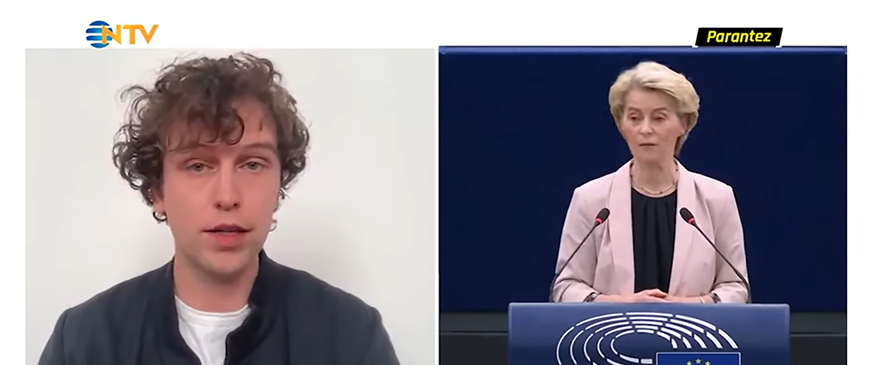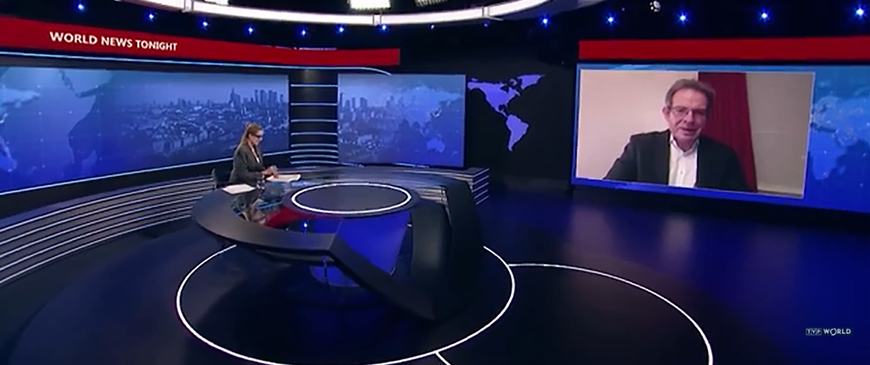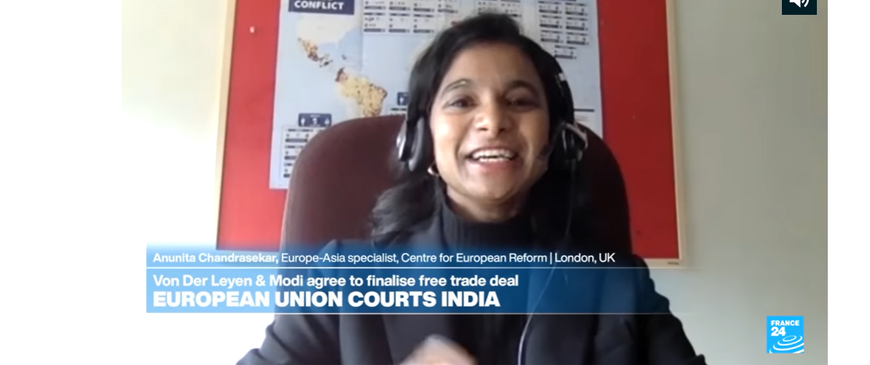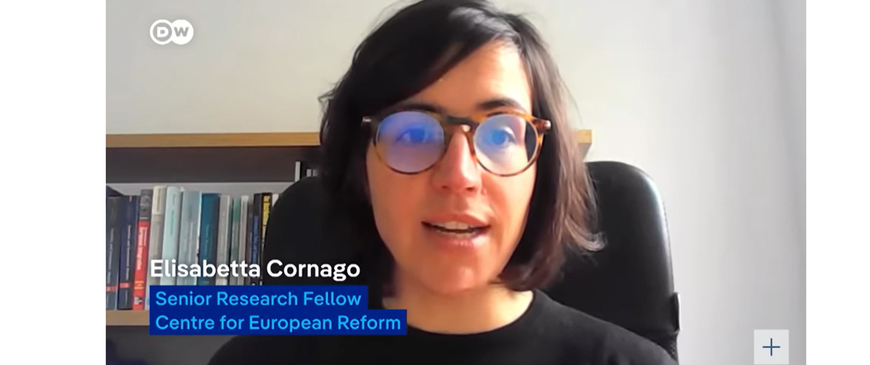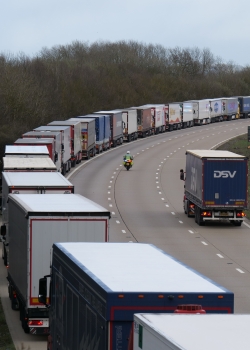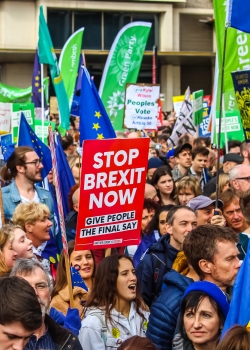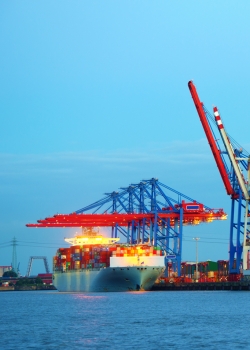Press
Salvini aims to forge far-right alliance ahead of European elections
04 April 2019
The Guardian
“I find it very difficult to imagine these two parties sitting down at the same table as part of the same grouping in Brussels,” said Agata Gostyńska-Jakubowska of the Centre for European Reform.
A long Brexit extension offers a chance to think again
04 April 2019
Financial Times
According to a recent paper from the Centre for European Reform, the UK economy is already some 2.5 per cent smaller than it would have been if Britain had not decided on Brexit. The knock-on effect on the public finances is, it argues, £360m a week, almost exactly the sum that the fount of economic wisdom, Boris Johnson, promised would be available after Brexit.
EU law strengthens Spanish hand in Gibraltar dispute
04 April 2019
Agence France Presse
Now, with Britain leaving the club and Spain staying in, Madrid has seized the chance to press its case.
"This is an important change in the EU's position on the Gibraltar issue," said Camino Mortera, a senior research fellow at the Centre for European Reform.
"Once the UK leaves the EU, the 27 obviously have to side with the club members, and not with the outgoing side," she told AFP.
"This is an important change in the EU's position on the Gibraltar issue," said Camino Mortera, a senior research fellow at the Centre for European Reform.
"Once the UK leaves the EU, the 27 obviously have to side with the club members, and not with the outgoing side," she told AFP.
Was Wirtschaftsprognosen leisten
04 April 2019
Tagesschau
"Weder Politik noch Unternehmen fahren gerne im Nebel", meint Christian Odendahl, Chefvolkswirt der Denkfabrik Centre for European Reform in Berlin, die nicht an der Gemeinschaftsdiagnose beteiligt ist. "Mit solchen Prognosen wird versucht, zumindest eine grobe Abschätzung über die wirtschaftliche Zukunft vorzunehmen." Eine Prognose unabhängig erstellen zu lassen, sei vernünftig, damit die Politik sich die Zukunft nicht "schönrechnen" könne.
No-deal Brexit would not be the end of the world – just very, very, very bad
04 April 2019
The New Statesman
Despite all of the evidence to the contrary, some have convinced themselves that exiting the EU without an agreement – “no deal” – is a good idea. It is not.
Pros and cons of customs union membership
03 April 2019
Financial Times
Sam Lowe, a leading trade expert at the Centre for European Reform, a think-tank, says Brexiters’ objections are overstated, since there are far more barriers to trade than tariffs, which in many cases are already low. “Being in a customs union would place no constraints on the UK’s ability to negotiate in the areas of services, intellectual property, public procurement, data and regulatory barriers to trade in goods,” he says.
Can Theresa May and Jeremy Corbyn compromise on Brexit?
03 April 2019
The Economist
Charles Grant of the Centre for European Reform, a think-tank, says the leaders are split, with France’s Emmanuel Macron inclined to be tougher on Mrs May than Germany’s Angela Merkel. Mr Grant adds that EU leaders will insist that, if Britain is still a member after May 22nd, which is likely even if Mrs May and Mr Corbyn miraculously compromise in the next few days, it must take part in the European Parliament elections due on May 23rd-26th.
NATO at 70: Where next?
03 April 2019
Politico
As member nations gather to celebrate NATO's 70th anniversary this week, Politico asked experts to forecast what the military alliance will look like 10 years from now.
Nato at 70: Europe fears tensions will outlast Trump
02 April 2019
The Financial Times
“The transatlantic relationship is changing: it’s a transition that started before Trump’s presidency and will continue after,” says Sophia Besch, a research fellow at the Centre for European Reform. “His approach that the US gains nothing from alliances is something that is specific to him. But the shift of interest to Asia and a general reluctance to get involved militarily because of the experience of forever wars has shaped the thinking of the next generation of American leaders.”
Record stockpiling at factories as fears of a no-deal Brexit rise
02 April 2019
The Telegraph
Separate research appeared to confirm that politicians’ failure to agree a way forward has intensified the uncertainty facing businesses. Goldman Sachs estimates the economy has lost out on growth amounting to an extra 2.4pc of GDP since the Brexit referendum, amounting to £600m per week. That estimate is matched by the Centre for European Reform, though the Bank of England puts it at 1.5pc to 2pc of GDP.
Decision day for the Commons
01 April 2019
The Financial Times
As Charles Grant of the Centre for European Reform writes, the Dutch, Germans, Irish, Poles and Swedes want to leave the door open to the UK. “But many other governments, and senior figures in the commission, are keen to excise the British cancer from the European body politic.”
Cabinet Office spends £5.5m in a month on Brexit consultants
01 April 2019
The Guardian
At the weekend the Centre for European Reform released calculations suggesting Britain’s economy is 2.5% smaller than it would have been if voters had chosen to stay in the EU in 2016, resulting in an extra £19bn of government borrowing a year.
Ukrainians living in Great Britain vote as experts analyze choices
01 April 2019
Kyiv Post
Ian Bond, a foreign policy director at the Centre for European Reform, said: “Zelenskiy has no experience in any description in politics rather than on screen,” he said, referencing to the TV series, Servant of the People, where Zelenskiy plays the president of Ukraine. “The big concern is that he may turn out to be just a front for Kolomoisky and Kolomoisky does not have a good reputation.”
Remainers, take note: Much of Europe just wants to excise the British cancer
01 April 2019
The Guardian
The mood in Brussels is pessimistic. Most of those closely involved in the Brexit talks think the likeliest outcome is for the UK to leave without a deal.
No-deal Brexit: What it means, how it could happen, and how it might affect daily life in the UK
01 April 2019
The Telegraph
Charles Grant, the director of the Centre for European Reform, is confident that if the crunch comes EU member-states will strike bilateral side-deals with the UK to cushion the blow. “For now the Commission is taking a strong line, but EU member-states will have to look after their own interests”, he predicts.
Brexit uncertainty shrinks UK economy and costs country £360m per week
31 March 2019
The National
The UK economy is 2.5 per cent smaller than it would have been had the country voted to remain in the European Union, with a knock-on effect to public finances of £360 million (Dh1.7 billion) a week, according to the Centre for European Reform.The cost exceeds the false assertion by the "leave" campaign in the run-up to the Brexit referendum in 2016 that being a member of the EU costs the country £350m a week to support the National Health Service – the government agency providing healthcare services in the UK.
A customs union beckons — and it won't stop trade deals
31 March 2019
The Sunday Times
As the trade expert Sam Lowe of the Centre for European Reform says he is now tired of pointing out, being in a customs union with the EU does not require Britain to sign up to the EU’s common commercial policy, under which it negotiates trade deals with other countries.
How China is planting its flag in Europe - and why it's bad news for Italy and France
30 March 2019
The Telegraph
“There is concern about the [Huawei communications infrastructure] 5G issue. At the same time German industry has a somewhat divided position in that they don’t want the government interfering and deciding to brand things as nationally critical technology meaning that they can’t then sell things very easily,” says Ian Bond, of the Centre for European Reform.
Un ‘brexit’ sin acuerdos, a lo que se está arriesgando el Reino Unido
30 March 2019
El Tiempo
Christian Odendahl, jefe economista del Centre for European Reform, explicó a este diario que “la UE, y con seguridad Alemania, se asegurarán de evitar una salida brutal, aunque forzarán al Reino Unido a participar en las elecciones europeas”.Todos los gobiernos europeos prefieren la salida acordada, pero la incertidumbre y la impaciencia van endureciendo las posturas. Francia lidera esa línea más dura.
The reality of Britain's role in the global trading system after Brexit remains deeply uncertain
30 March 2019
The Independent
Continuity agreements are in place with a small number of countries but replicating the arrangements that Britain currently benefits from will be the overriding priority throughout the transition period - if there is one - and beyond.

